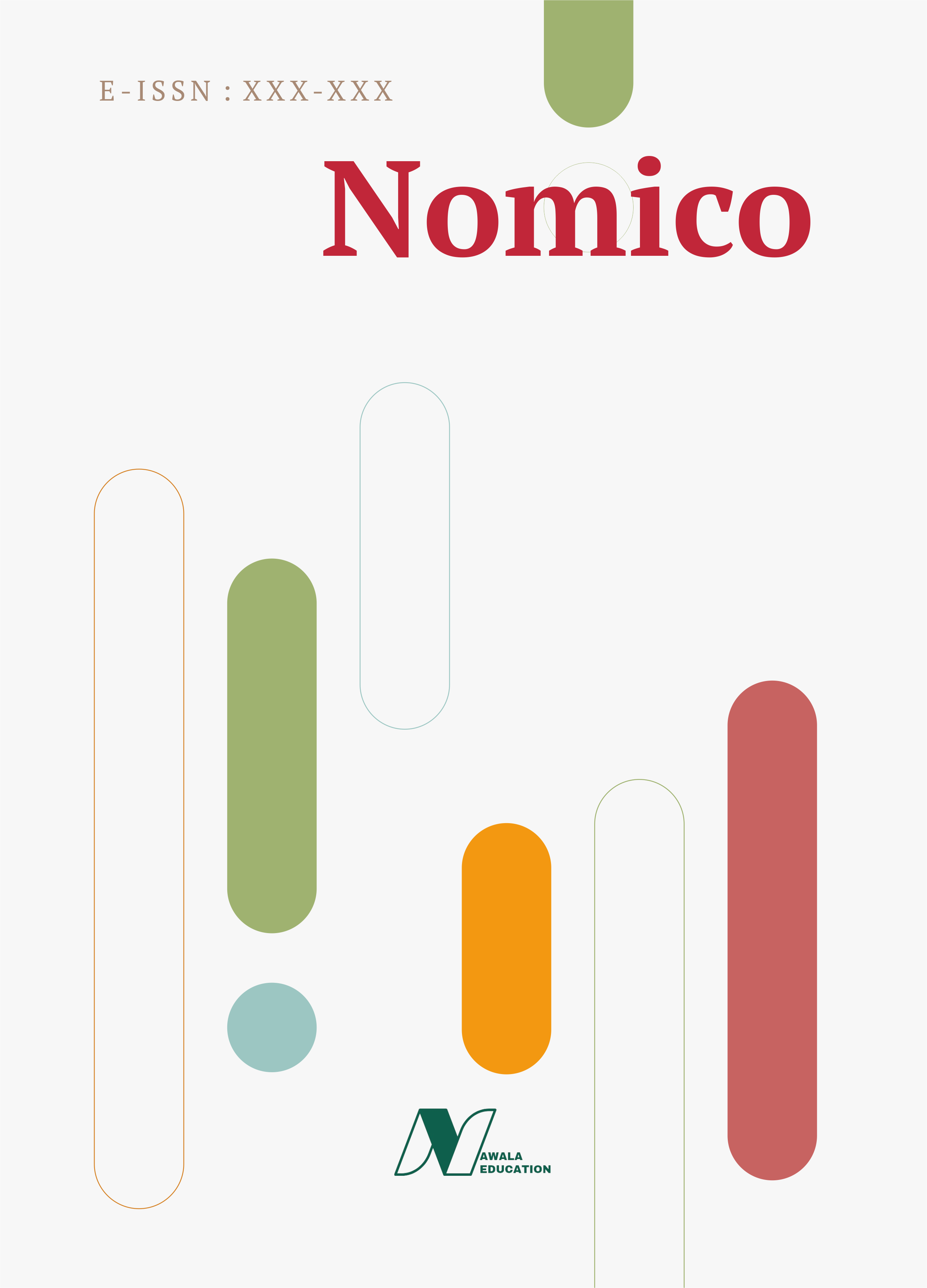E-Commerce's Impact On Economic Growth
DOI:
https://doi.org/10.62872/hqfac055Keywords:
E-commerce, Economic Growth, SMEsAbstract
This study aims to analyze the impact of e-commerce on economic growth in Indonesia using a Systematic Literature Review (SLR) approach. E-commerce has become a significant global phenomenon, and Indonesia is projected to have the highest e-commerce growth rate in the world in 2024. With an e-commerce trade value reaching 78%, Indonesia shows great potential in this sector. The study finds that e-commerce contributes significantly to increased productivity and efficiency, broader market access, and technology and innovation adoption by SMEs. However, challenges such as technology access, digital literacy, and infrastructure remain obstacles. The study emphasizes the need for policies that support the enhancement of digital infrastructure and training for SMEs to optimize e-commerce potential. Relevant policy implications can help the government and stakeholders maximize the benefits of e-commerce for national economic growth. By using the SLR approach, this study provides a comprehensive and integrative analysis of the impact of e-commerce on economic growth in Indonesia and presents strong empirical evidence of the causal relationship between the two. The study also offers recommendations for future research, including the use of primary data, regional analysis, international comparative studies, and attention to social and environmental impacts. Additionally, further research into policy and regulatory effectiveness, the role of technology and innovation, longitudinal studies, and collaboration with the private sector is also recommended. Thus, this study makes an important contribution to understanding and leveraging e-commerce potential for sustainable economic growth in Indonesia.
Downloads
References
A. K., & -, A. M. (2023). Digital Economy’s Contribution in India’s Sustainable Economic Reinforcement. International Journal For Multidisciplinary Research, 5(4), 5685. https://doi.org/10.36948/ijfmr.2023.v05i04.5685
Aleksandrova, A., Truntsevsky, Y., & Polutova, M. (2022). Digitalization and its impact on economic growth. Brazilian Journal of Political Economy, 42(2), 424–441.
Aprilyan, Y., & Sasanti, E. E. (2022). Pengaruh E-Commerce Terhadap Peningkatan Pendapatan Usaha Mikro Kecil Dan Menengah (UMKM) Di Kabupaten Lombok Barat. Jurnal Riset Mahasiswa Akuntansi, 2(2), 292–306.
Armunanto, Y. N., Selina, M., & Suparta, I. W. (2021). E-Commerce Effect On Economic Growth In Asean Countries. SSRG International Jurnal of Economics and Management Studies, 8. http://repository.lppm.unila.ac.id/32079/
Bănescu, C.-E., Țițan, E., & Manea, D. (2022). The impact of E-commerce on the labor market. Sustainability, 14(9), 5086.
Criveanu, M. M. (2023). Investigating Digital Intensity and E-Commerce as Drivers for Sustainability and Economic Growth in the EU Countries. Electronics, 12(10), 2318. https://doi.org/10.3390/electronics12102318
Dauda, P., Paris, P. P., Megawaty, M., Hendriadi, H., & Kausar, A. (2023). Pengaruh Electronic Commerce (E-Commerce) terhadap Peningkatan Pendapatan pada UMKM di Kabupaten Gowa. JEMMA (Journal of Economic, Management and Accounting), 6(1), 105–111.
ECDB: Proyeksi Pertumbuhan e-Commerce Indonesia Tertinggi Sedunia pada 2024. (n.d.). Retrieved July 28, 2024, from https://databoks.katadata.co.id/datapublish/2024/04/29/ecdb-proyeksi-pertumbuhan-e-commerce-indonesia-tertinggi-sedunia-pada-2024
Haji, K. (2021). E-commerce development in rural and remote areas of BRICS countries. Journal of Integrative Agriculture, 20(4), 979–997. https://doi.org/10.1016/S2095-3119(20)63451-7
Hang, H. T., & Adjouro, T. (2021). The effects of cross-border e-commerce on international trade and economic growth: A case of China. International Journal of Economics and Finance, 13(12), 82–89.
Hanny, R., Syah, A., & Novita, D. (2020). Analisis Penggunaan E-Commerce Terhadap Peningkatanpendapatan Umkm Kuliner Kecamatan Sawangan-Depok. Journal Of Management, Business And Education, 7(1), 56–68.
Kadir, S., & Shaikh, J. M. (2023). The effects of e-commerce businesses to small-medium enterprises: Media techniques and technology. AIP Conference Proceedings, 2643(1). https://pubs.aip.org/aip/acp/article-abstract/2643/1/050078/2872720
Ke, N. (2022). Factors of E-commerce on Regional Economic Development [PhD Thesis]. https://www.wkuwire.org/handle/20.500.12540/739
Khan, S. A. (2023). E-marketing, e-commerce, e-business, and internet of things: An overview of terms in the context of small and medium enterprises (SMEs). Global Applications of the Internet of Things in Digital Marketing, 332–348.
KOMINFO, P. (n.d.). Kemkominfo: Pertumbuhan e-Commerce Indonesia Capai 78 Persen. Website Resmi Kementerian Komunikasi dan Informatika RI. Retrieved July 28, 2024, from http:///content/detail/16770/kemkominfo-pertumbuhan-e-commerce-indonesiacapai-78-persen/0/sorotan_media
Lastri, W. A., & Anis, A. (2020). Pengaruh E-Commerce, Inflasi dan Nilai Tukar Tukar Terhadap Pertumbuhan Ekonomi Indonesia. Jurnal Kajian Ekonomi Dan Pembangunan, 2(2), 25–28.
Laudon, K. C., & Traver, C. G. (2020). E-commerce 2019: Business, technology, society. Pearson. https://thuvienso.hoasen.edu.vn/handle/123456789/12556
Lestari, N. P., Juliprijanto, W., & Prakoso, J. A. (2021). Determinan E-commerce Terhadap Pertumbuhan Ekonomi Indonesia. DINAMIC: Directory Journal of Economic, 3(1), 1–13.
Rahmadani, A. N., Aziz, A. Z., Indriani, D., Fairuz, J., Sabina, Z., & Nasution, D. P. (2024). Analisis E-Commerce Sebagai Ekonomi Digital Dalam Mendorong Pertumbuhan Perekonomian Di Indonesia. Jurnal Kajian Dan Penelitian Umum, 2(1), 27–33.
Tasri, E. S., Amelia, D., & Dwianda, Y. (2023). The contribution of E-commerce to economic growth in the covid-19 era. Economics Development Analysis Journal, 12(1), 129–140.
Toska, A., & Fetai, B. (2023). The Impact of E-Commerce on the Economic Growth of the Western Balkan Countries: A Panel Data Analysis. International Journal of Sustainable Development & Planning, 18(3). https://www.researchgate.net/profile/Asdren_Toska/publication/369943205_The_Impact_of_E-Commerce_on_the_Economic_Growth_of_the_Western_Balkan_Countries_A_Panel_Data_Analysis/links/643598bb609c170a130cfeff/The-Impact-of-E-Commerce-on-the-Economic-Growth-of-the-Western-Balkan-Countries-A-Panel-Data-Analysis.pdf
Yang, L., Liu, J., & Yang, W. (2023). Impacts of the sustainable development of cross-border e-commerce pilot zones on regional economic growth. Sustainability, 15(18), 13876.
Zeng, S., Fu, Q., Haleem, F., Han, Y., & Zhou, L. (2023). Logistics density, E-commerce and high-quality economic development: An empirical analysis based on provincial panel data in China. Journal of Cleaner Production, 426, 138871
Downloads
Published
Issue
Section
License
Copyright (c) 2024 Lidya Anggraeni (Author)

This work is licensed under a Creative Commons Attribution-ShareAlike 4.0 International License.

This work is licensed under a Creative Commons Attribution-ShareAlike 4.0 International License.











